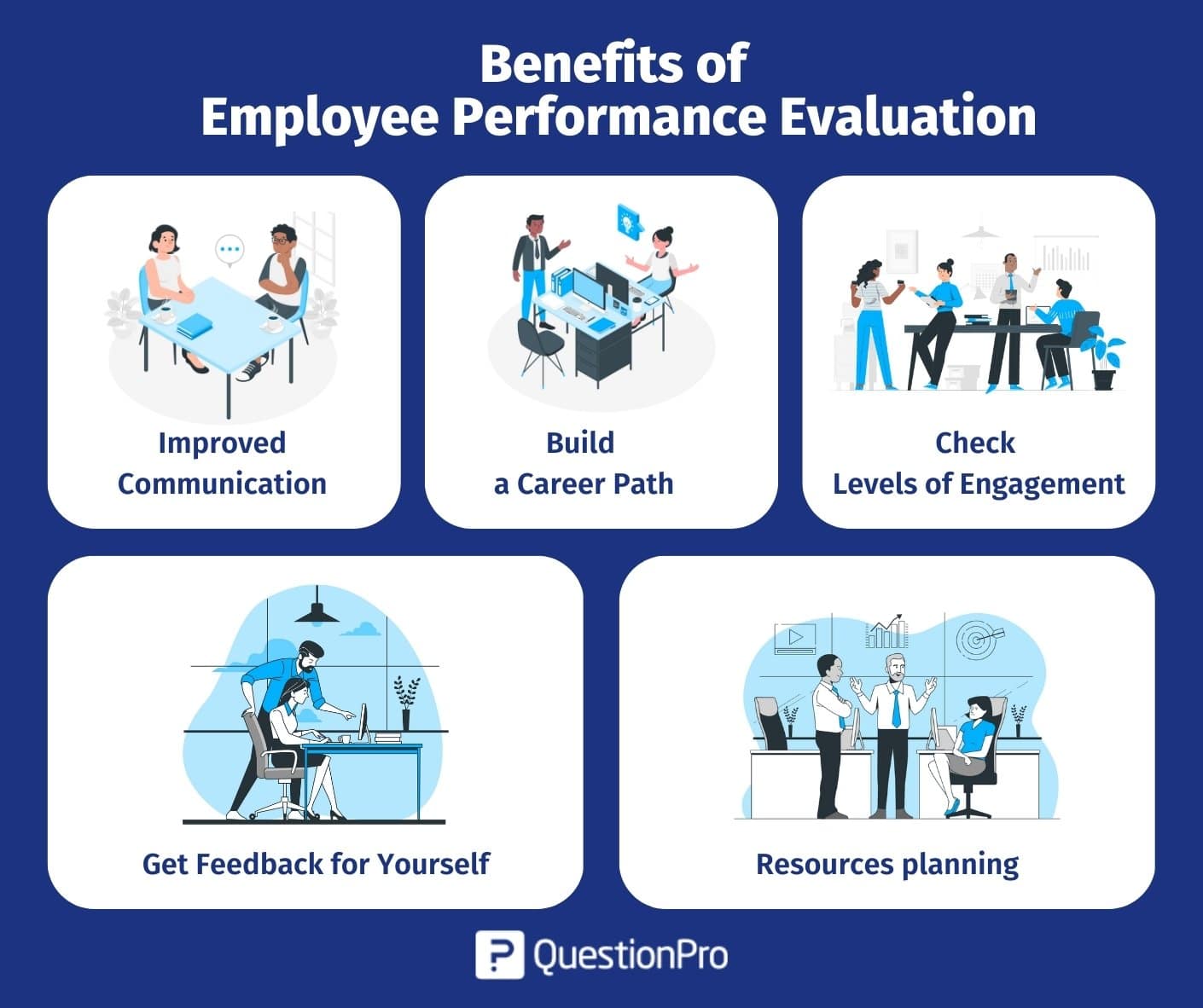
Performance evaluation
Performance evaluation, often referred to as a performance review or appraisal, is a systematic process used by organizations to assess an employee’s job performance. It’s a crucial aspect of human resources management, providing valuable insights into employee strengths, weaknesses, and areas for improvement. While the term “evaluation” might sound formal, the process itself can be quite relaxed and collaborative when approached with the right mindset.
Why is Performance Evaluation Important?
Employee Growth

Performance evaluations provide employees with constructive feedback on their work. This feedback helps them identify areas where they excel and areas where they can improve. It allows them to set realistic goals, develop new skills, and advance their careers within the organization.
Organizational Success
By regularly assessing employee performance, organizations can identify top performers, reward their contributions, and address any performance issues proactively. This helps to improve overall team and organizational performance.
Improved Communication
Performance evaluations provide a structured platform for open and honest communication between employees and managers. This regular dialogue can strengthen relationships, build trust, and foster a more positive and productive work environment.
Legal and Compliance

In many jurisdictions, regular performance evaluations are required by law. These evaluations can help organizations document employee performance, which can be crucial in legal matters such as promotions, raises, and terminations.
Preparing for a Performance Evaluation
Both employees and managers can take steps to ensure a successful and productive performance evaluation:
For Employees:
Reflect on your work
Think about your key accomplishments, challenges faced, and the skills you’ve developed throughout the review period.
Set realistic goals
Consider your career aspirations and identify specific, measurable, achievable, relevant, and time-bound (SMART) goals for the upcoming period.
Prepare examples
Gather specific examples of your successes and any challenges you encountered. This will help you effectively communicate your contributions and demonstrate your value to the organization.
Be open and honest
Be prepared to discuss your performance openly and honestly with your manager. Share your perspectives, concerns, and any feedback you have about your role or the team.
For Managers:
Schedule regular check-ins
Don’t wait for the formal performance review to provide feedback. Conduct regular check-ins with your employees throughout the year to discuss their progress, address any concerns, and provide ongoing support.
Gather data
Collect data on employee performance throughout the review period. This might include performance metrics, customer feedback, project deliverables, and observations from colleagues.
Prepare constructive feedback
Focus on providing specific, actionable, and constructive feedback. Avoid vague or general statements, and always frame your feedback in a way that is helpful and supportive.
Create a safe and respectful environment
Ensure that the performance review meeting takes place in a safe and respectful environment where employees feel comfortable sharing their thoughts and concerns.
The Performance Review Meeting
The performance review meeting itself should be a collaborative and constructive conversation. Here are some tips for making the most of it:
Start with the positives
Begin the meeting by acknowledging the employee’s strengths and accomplishments. This sets a positive tone for the conversation.
Focus on both strengths and weaknesses
Discuss both the employee’s strengths and areas for improvement. Provide specific examples to illustrate each point.
Set clear goals and action plans
Work together to set clear, achievable goals for the upcoming review period. Develop an action plan for how the employee will address any areas for improvement.
Document the meeting
Document the key discussions, agreements, and action items from the meeting. This will serve as a valuable reference for both the employee and the manager.
Follow up
After the meeting, follow up with the employee to ensure they understand the feedback and are on track to achieve their goals.
Tips for a Relaxed and Effective Performance Review
Focus on growth and development
Frame the performance review as an opportunity for growth and development, rather than simply a judgment of past performance.
Use a collaborative approach
Treat the performance review as a collaborative process, where both the employee and the manager work together to identify areas for improvement and develop a plan for success.
Build trust and rapport
Cultivate a strong and trusting relationship with your employees throughout the year. This will make the performance review process more comfortable and productive.
Be flexible and adaptable
Be flexible and adaptable in your approach to performance reviews. Tailor the process to the specific needs and preferences of each employee.
Celebrate successes
Don’t forget to celebrate employee successes throughout the year. This helps to reinforce positive behavior and motivate employees to continue striving for excellence.
Conclusion
Performance evaluation is a vital component of any successful organization. When conducted effectively, it can provide valuable insights into employee performance, drive employee growth and development, and contribute to overall organizational success. By following the tips outlined in this article, both employees and managers can ensure that the performance review process is a relaxed, productive, and mutually beneficial experience.